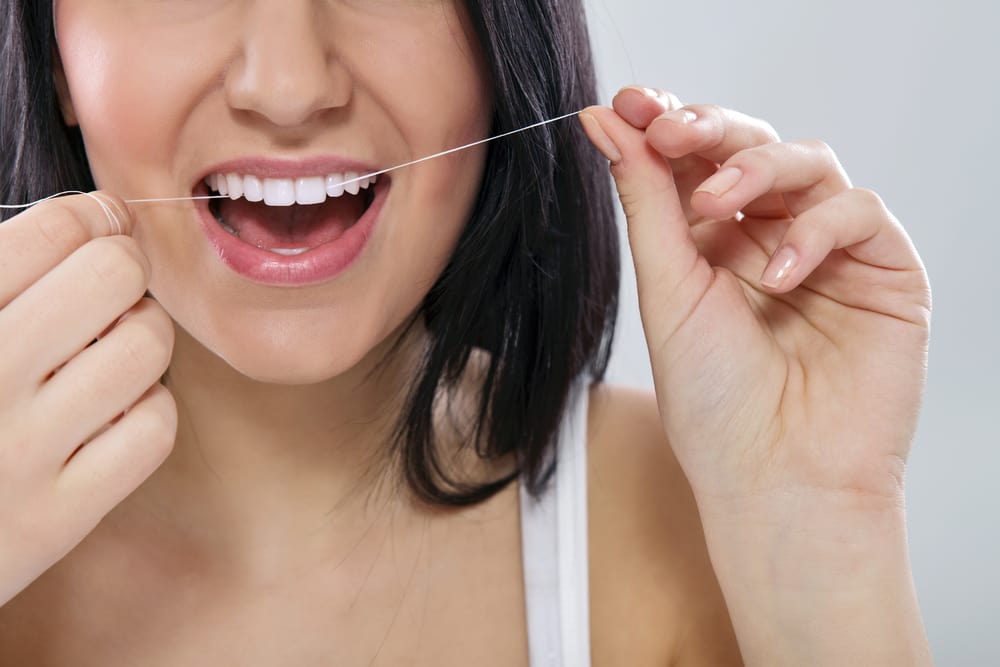The importance of taking care of your teeth and gums cannot be over-emphasised. If you practice good oral hygiene, your breath will smell fresh, your gums will not bleed when you brush, and your teeth will remain white and free from discolouration. But how can you ensure that you are doing everything possible to maintain a high level of oral health? Here are six tips to guide you in your quest for the perfect set of teeth.

1. Visit your dentist regularly
You should make it a habit to visit your dentist at least twice a year. This is necessary even if you don’t have any complaints about your teeth or gums. Dentists will be able to spot problems as they arise and treat them at an early stage.
For instance, if your teeth are not aligned properly, your dentist may suggest that you need braces. Misaligned teeth can look unattractive and can even lead to an inability to chew food well. However, braces can be expensive and it is a good idea to educate yourself about the average cost of braces in Singapore before you finalise your treatment.
2. Brush your teeth twice a day
Most people do brush their teeth every morning and night. However, it is important to brush your teeth in the correct manner. Improper brushing does not help your teeth at all and you could actually be damaging your gums every time you use the wrong brushing technique.
What is the correct way to clean your teeth? Hold your brush at a 45-degree angle to your gums. Then sweep the brush away from your gums. Remember to brush the insides, outsides, as well as the chewing surfaces of your teeth. If you use this method, you will successfully remove the plaque that accumulates in your mouth.
Plaque is a sticky layer of bacteria that coats your teeth. A failure to free your teeth of plaque can result in cavities and gingivitis, an inflammation of the gums leading to gum disease.
3. Select the correct toothbrush
If you use an unwieldy toothbrush, you will find it difficult to access all the areas of your mouth. Find a brush that you are comfortable with. Usually, a small toothbrush head works best. Most people also prefer a toothbrush with a long handle so that they can grasp it firmly.
Should you use hard or soft bristles? Again, it is a personal choice. Although some people are most comfortable with hard bristles, a toothbrush with soft bristles is appropriate if you have sensitive gums. Don’t make the mistake of selecting hard bristles if your gums bleed when you brush them.
Many people neglect to change their toothbrush often enough. Brushing with an old and frayed toothbrush will not help you clean your teeth. In fact, not only will your old toothbrush be ineffective, it can actually harm you. The bacteria that it carries can give you gingivitis and inflamed gums.
4. Floss at least once a day
Unfortunately, just brushing your teeth regularly will not ensure your dental health. The bristles of your toothbrush cannot reach between your teeth. This is where food particles and plaque tends to accumulate. Flossing is essential to remove plaque and according to dental hygiene experts, it is more effective than brushing for this task.
You should floss at least once a day, preferably twice. Regular flossing helps in controlling bad breath and reducing the incidence of gum disease and tooth decay.
5. The elderly need special care
Advancing years usually lead to increased dental problems and many elderly people suffer from poor oral health. Arthritis, a disease which afflicts the elderly, can make brushing and flossing difficult. Age also gives rise to another problem. As an elderly person loses teeth, the ability to chew food decreases. This could lead to poor nutrition and a lower resistance to disease. Getting dentures can help overcome the lack of natural teeth.
However, dentures are available in a wide range of prices. It is advisable to check out the average cost of dentures at various clinics to get an idea of how much you will need to spend. If you have more money to spare, it might be worth considering getting implants for your parents, as these are much more durable and convenient than dentures. However, you should be aware that implants do cost substantially more than dentures.
6. Watch your consumption of sugar and sweetened drinks
Every time you eat a sugar-laden snack or consume a sweetened drink, the bacteria in your mouth get an opportunity to produce a type of acid that can harm your teeth. According to the September 2016 issue of the Statistics Singapore Newsletter, about half of all Singaporeans indulge in sweetened drinks every day.
Consuming an excess of sugar can lead to cavities and tooth decay. Consequently, you may experience discomfort and need to visit a dentist. The average cost of dental procedures in Singapore can be quite high. Do a little research to find out the amount that you can expect to pay.
Periodic visits to the dentist, regular brushing, and good eating habits can go a long way in giving you a healthy set of teeth. Paying attention to your dental hygiene can also save you from unpleasant dental procedures that can cost a lot of money.
The article 6 Tips on Maintaining Dental Hygiene originally appeared on ValuePenguin.
ValuePenguin helps you find the most relevant information to optimise your personal finances. Like us on our Facebook page to keep up to date with our latest news and articles.
More From ValuePenguin:
- Best Credit Cards with Promotion and Bonus 2017
- Best Personal Loans in Singapore 2017
- Best Travel Insurance 2017
Source: ValuePen

